Whether you’re a small enterprise looking for a straightforward solution or a large corporation seeking a robust, customizable platform, choosing the right ecommerce software is key to optimizing operations and ensuring long-term growth.
That’s why today, we are focusing on two leading ecommerce platforms: SAP Commerce Cloud vs Shopify. While each platform offers powerful capabilities, they cater to different business needs. In today’s detailed comparison, we’ll explore their features, advantages, and disadvantages, and help you determine which platform suits your business requirements best.
What Is SAP Commerce Cloud?
SAP Commerce Cloud is an enterprise-grade, cloud-based ecommerce platform, part of the larger SAP ecosystem. It’s designed to handle complex business requirements, making it a perfect choice for large enterprises. SAP Commerce Cloud offers advanced features such as scalability, high-level customization, and seamless integration with SAP’s ERP and CRM systems, providing businesses with a unified view of their operations.
With SaM Solutions’ SAP Commerce Cloud team, you get a robust ecommerce system and deliver personalized omnichannel experiences that increase your customer loyalty.
Pros
- Enterprise-level scalability: SAP Commerce Cloud is built for businesses that handle large volumes of transactions, making it a solid choice for enterprises aiming to scale their operations.
- Integration with SAP solutions: One of the most significant advantages of SAP Commerce Cloud is its seamless integration with other SAP solutions like ERP, CRM, and SAP S/4HANA. This allows businesses to synchronize their ecommerce operations with back-end systems for better decision-making and streamlined processes.
- Advanced customization: SAP Commerce Cloud offers extensive options for customization, allowing businesses to create highly personalized shopping experiences. Whether you need to adapt the platform for specific business needs or enhance the user experience, the platform provides the necessary flexibility.
- Support for B2B and B2C models: SAP Commerce Cloud is versatile supporting both B2B (business-to-business) and B2C (business-to-consumer) ecommerce models, making it an excellent solution for companies operating in multiple channels.
- Robust security and compliance features: SAP Commerce Cloud comes with built-in security features that help protect data and ensure compliance with various industry regulations, including GDPR.
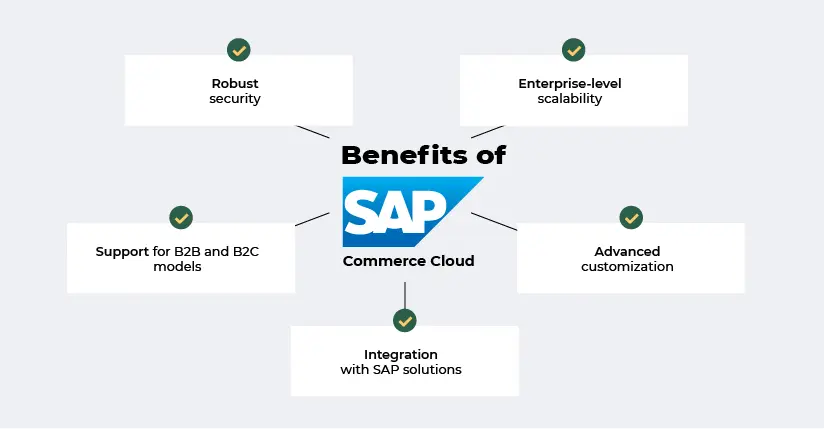
Besides, SAP Commerce Cloud is a perfect choice for Black Friday. And there are numerous reasons why global enterprises choose this platform for high-traffic periods:
- Handles peak traffic effortlessly
- Ensures fast and reliable service operation
- Protects customer data
- Seamlessly integrates with third-party systems and services
Cons
- High cost: SAP Commerce Cloud is relatively expensive, which may be a deterrent for small and medium-sized businesses. The cost of the platform, along with its implementation and ongoing maintenance, can be a significant investment.
- Complex implementation: Due to its extensive customization and integration capabilities, setting up SAP Commerce Cloud can be time-consuming and requires specialized expertise.
- Technical expertise required: Unlike more user-friendly platforms, SAP Commerce Cloud requires a higher level of technical expertise for implementation, management, and customization. This often necessitates hiring specialized developers or working with certified partners.
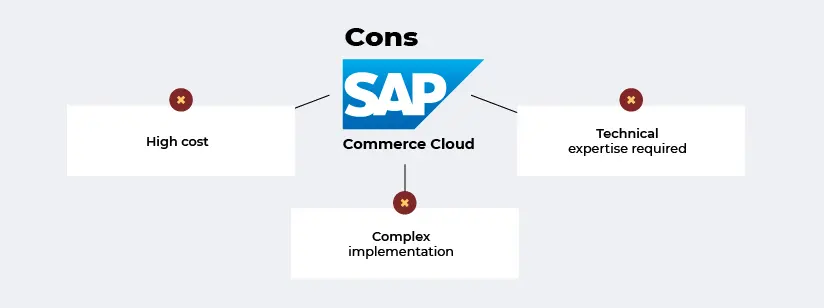
What Is Shopify?
Shopify is a leading cloud-based ecommerce platform designed to make it easy for businesses of all sizes to create and manage their online stores. Shopify is known for its simplicity, affordability, and speed of setup, making it a popular choice for small and medium-sized businesses. Shopify provides a wide range of themes, apps, and integrations, allowing users to quickly launch their stores and start selling online.
Pros
- Ease of use: Shopify is renowned for its user-friendly interface, allowing non-technical users to easily set up and manage their online stores. The platform offers drag-and-drop functionality and a range of predesigned themes, reducing the need for custom development.
- Quick setup: Businesses can get their Shopify store up and running in a matter of days, which is a significant advantage for startups and small businesses looking to launch quickly.
- Affordable pricing: Shopify offers flexible pricing plans, making it an attractive option for small businesses with limited budgets. The platform offers a variety of plans, including Shopify Lite, Basic, Shopify, and Advanced Shopify, catering to businesses of different sizes and needs.
- Extensive app ecosystem: Shopify boasts a vast ecosystem of apps and plugins that extend the platform’s functionality. Whether you need advanced marketing tools, inventory management features, or payment integrations, Shopify’s App Store offers a wide variety of options.
- 24/7 customer support: Shopify offers around-the-clock support to its users, ensuring that help is available whenever needed.
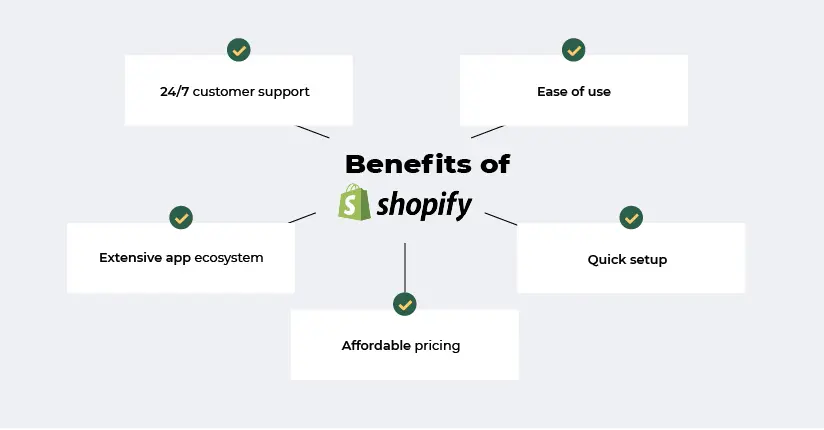
Cons
- Limited customization: While Shopify provides numerous themes and apps, it lacks the deep customization options available with platforms like SAP Commerce Cloud. For businesses with complex, unique requirements, Shopify may not offer the flexibility needed.
- Transaction fees: Unless businesses use Shopify Payments, Shopify charges transaction fees on sales made through external payment gateways, which can add up over time.
- Scalability limitations: Although Shopify can accommodate businesses of different sizes, its scalability is limited when compared to enterprise-level platforms like SAP Commerce Cloud. Large businesses with high transaction volumes and complex requirements may find Shopify less capable of handling their growth.
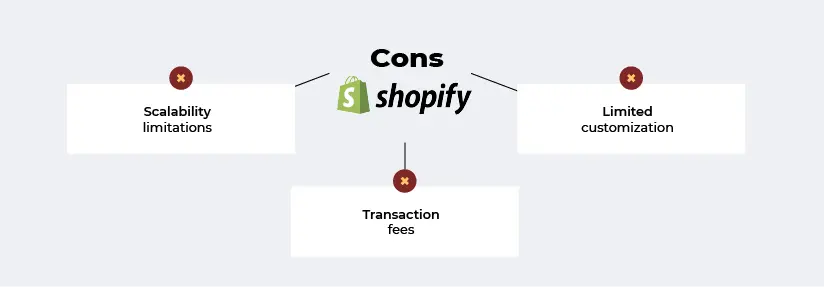
SAP Commerce Cloud vs Shopify: What Is the Difference?
To help you better understand the key differences between SAP Commerce Cloud and Shopify, let’s compare them across a variety of features.
Target audience
Both SAP Commerce Cloud and Shopify cater to different types of businesses. SAP Commerce Cloud is built for large enterprises with complex, high-volume operations, while Shopify is ideal for small and medium-sized businesses that prioritize simplicity and ease of use.
Customization & flexibility
When it comes to customization, SAP Commerce Cloud takes the lead. It allows businesses to customize every aspect of the platform to meet their unique needs, offering flexibility that is unmatched by Shopify. On the other hand, Shopify provides a range of themes and plugins but lacks the deep customization capabilities that large enterprises may require.
Scalability
While both platforms are scalable, SAP Commerce Cloud is better suited for large enterprises with complex needs and high transaction volumes. Shopify, though scalable for smaller businesses, may not be able to handle the complexity and scale required by larger corporations.
Integration capabilities
SAP Commerce Cloud’s ability to integrate seamlessly with SAP’s extensive suite of enterprise solutions makes it a powerful option for businesses looking for a unified system. Shopify, while not as robust in this regard, offers a vast ecosystem of third-party apps that can add additional functionality to the platform.
Pricing
SAP Commerce Cloud is a premium platform, and its pricing reflects that. It is designed for large enterprises that are willing to invest in a robust, customizable solution. Shopify, on the other hand, offers more affordable pricing plans, making it a better option for small and medium-sized businesses.
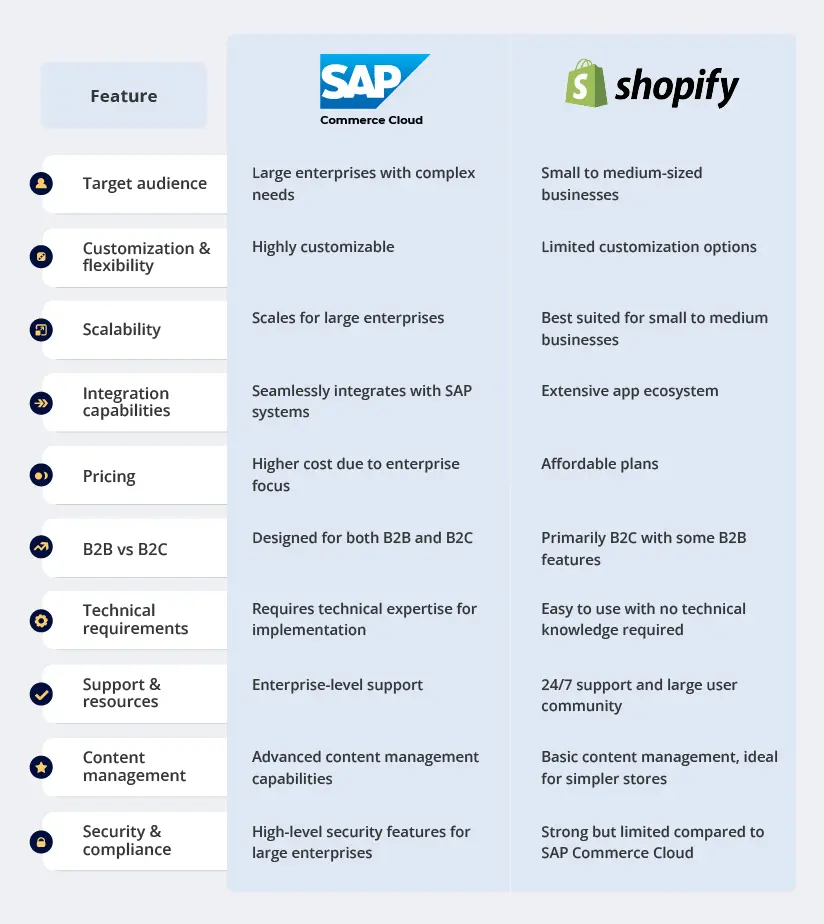
How SaM Solutions Can Help You
At SaM Solutions, we specialize in providing customized ecommerce solutions tailored to meet the unique needs of your business. If you’re considering SAP Commerce Cloud for its enterprise-level capabilities, our team of experts is here to help. We offer:
- Custom implementation: We help businesses set up and configure SAP Commerce Cloud, ensuring that the platform aligns with your business goals.
- Integration services: Our team integrates SAP Commerce Cloud with your existing ERP, CRM, and other systems, ensuring seamless operations across your business.
- Ongoing support: We provide continuous support to ensure that your ecommerce platform runs smoothly and efficiently.
When choosing an SAP Commerce Cloud implementation partner, it’s important to ensure they have been certified and have all the necessary qualifications.
According to the SAP Competency Framework, a certified SAP Service partner should have:
- Proven competencies and specializations in SAP products.
- A successful project portfolio.
- Certified experts on board.
- Knowledge of local requirements, practices, and regulations.
- Proprietary industry-specific solutions.
- Strong alignment with clients’ business values.
And here’s how we follow all these SAP Competency Framework requirements:
As you can see, we tick all the boxes of the SAP Competency Framework, and this expertise makes sure we can help you deliver custom solutions on SAP Commerce Cloud on time and within your budget.
Besides, at SaM Solutions, we have our own training labs where we carry out continuous practical SAP training with mentorship from external and internal experts. This is combined with our R&D team that pushes boundaries in the SAP realm, leveraging AI/ML, AR, IoT, and data science, for innovative implementations.
You don’t have to spend an enormous amount of time and money training your in-house team. Instead, you can get a reliable partner with 10+ years of SAP Commerce Cloud expertise and get the needed solutions much faster.
Enhance your digital commerce outcomes by building a seamless customer experience ecosystem with SaM Solutions’ SAP Commerce Cloud team.
Conclusion
SAP Commerce Cloud (former SAP Hybris) vs Shopify decision depends on your business’s size, complexity, and goals. SAP Commerce Cloud is the best choice for large enterprises that need advanced customization, scalability, and integration capabilities. Meanwhile, Shopify offers a user-friendly, affordable platform perfect for small to medium-sized businesses that prioritize ease of use and quick setup.
If you’re unsure which platform is right for you, SaM Solutions can guide you through the decision-making process and provide customized SAP Commerce Cloud solutions to meet your needs.



















 The Latest 15 Information Technology Trends in 2024
The Latest 15 Information Technology Trends in 2024 Top 10 Embedded Software Development Tools
Top 10 Embedded Software Development Tools IaaS vs. PaaS vs. SaaS: What’s the Difference?
IaaS vs. PaaS vs. SaaS: What’s the Difference? 10 Examples of Predictive Analytics
10 Examples of Predictive Analytics






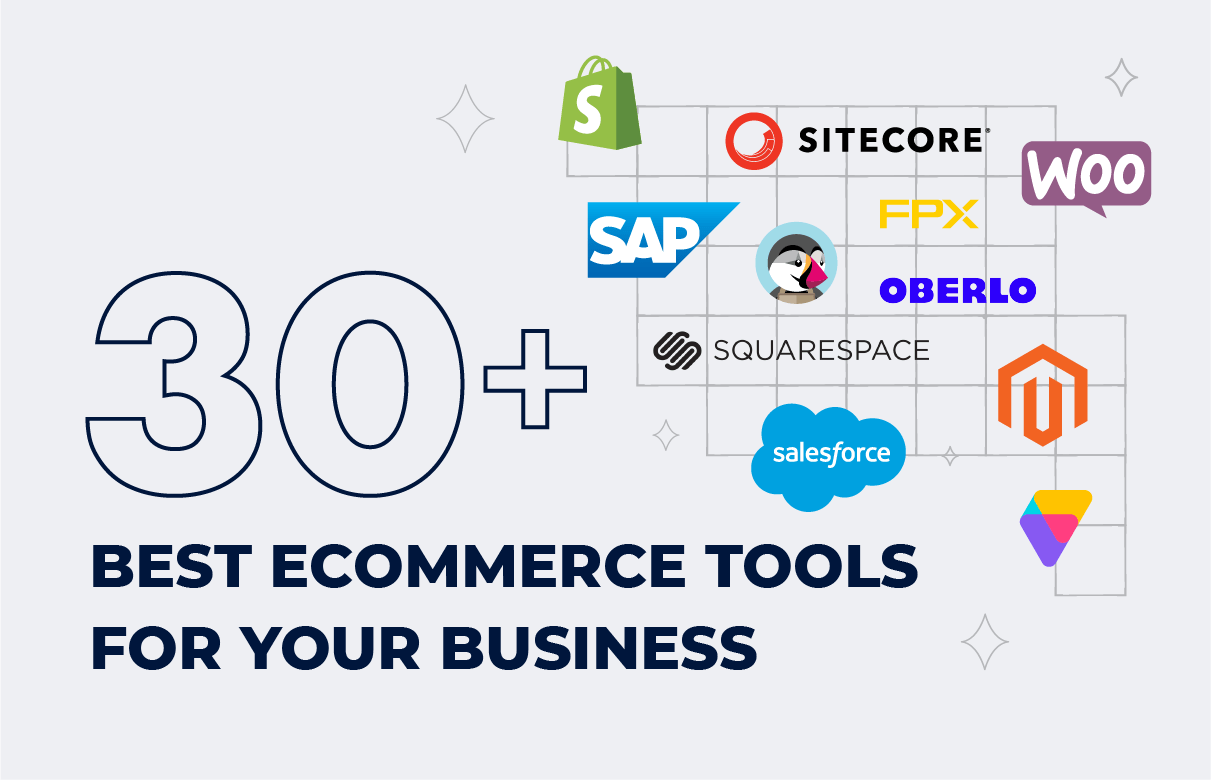


![What Is Ecommerce Customer Service? [Including 8 Best Practices]](https://www.sam-solutions.com/blog/wp-content/uploads/Customer-Service-in-eCommerce.png)


 Web App Development Cost in 2025 [Key Price Factors]
Web App Development Cost in 2025 [Key Price Factors] 13 Best React Development Tools in 2025
13 Best React Development Tools in 2025 Top 10 Mobile App Development Trends 2025
Top 10 Mobile App Development Trends 2025 Top IoT Industry Trends in 2025
Top IoT Industry Trends in 2025 Java Web App Security: Everything You Need to Know
Java Web App Security: Everything You Need to Know